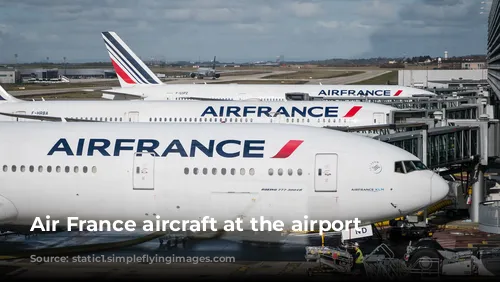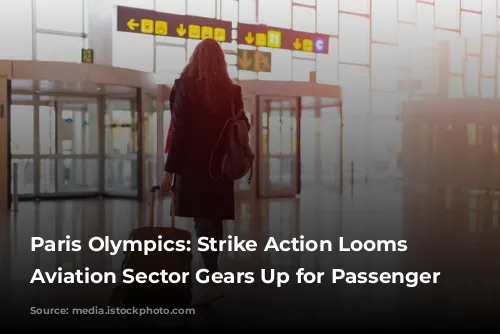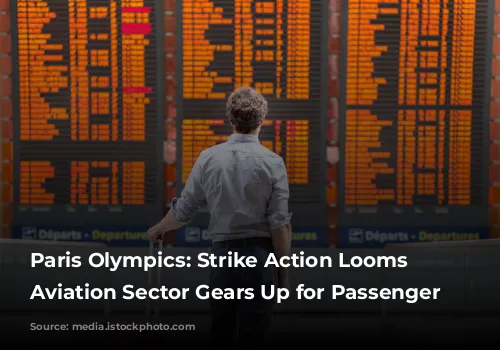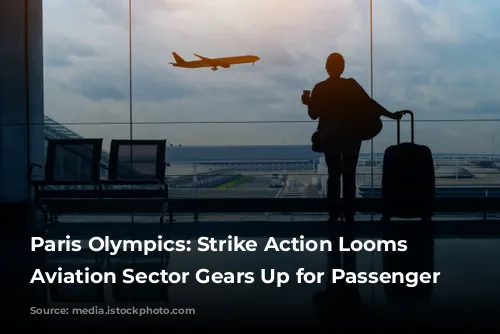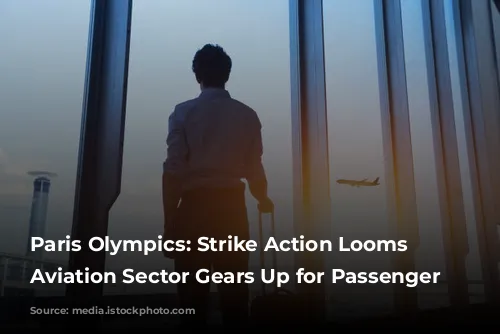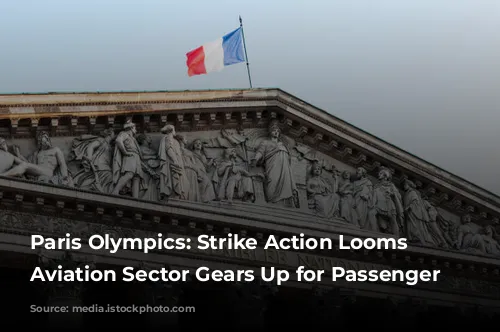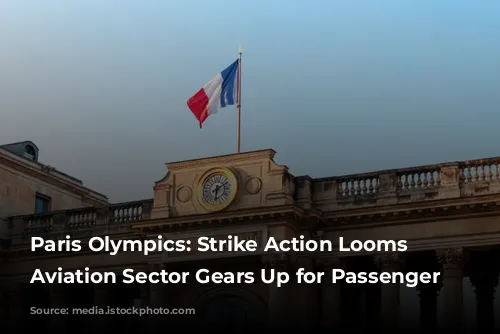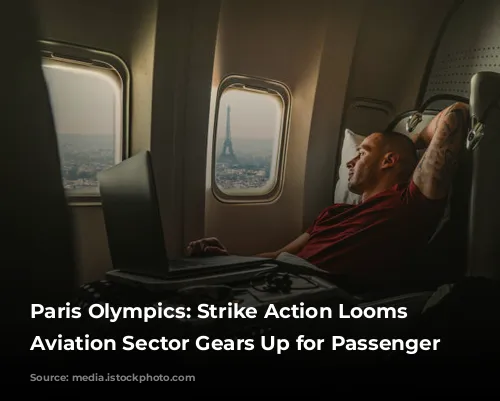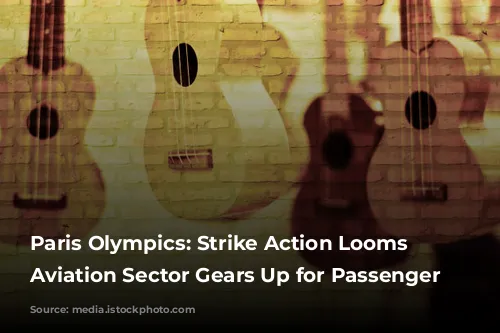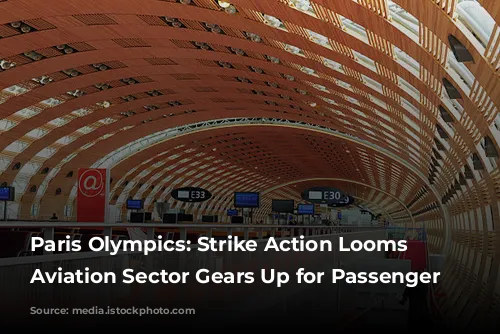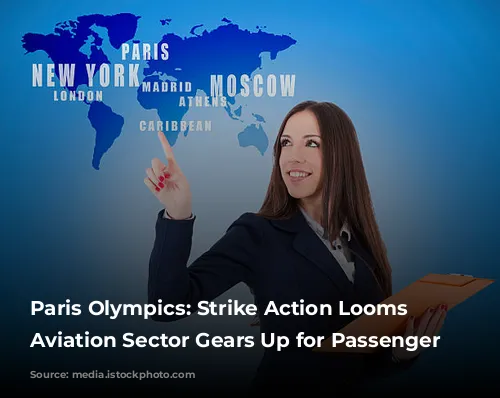The Paris Olympics are just around the corner, and the aviation sector is bracing for a surge in arriving passengers. But a wave of strike action threatens to throw a wrench into the works, adding another layer of complexity for airport authorities and staff as they prepare for the influx.
This section focuses on the impending strike action by various unions, including the ground staff union at Paris airports and the pilot union at Air France. It also mentions the pre-planned airspace closure during the opening ceremony.
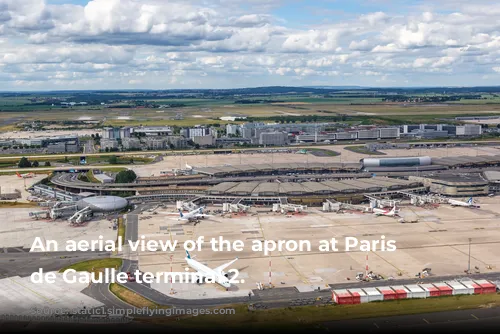
Union Discontent Threatens Olympic Operations
A minority union representing ground staff at Paris’ three major airports, including the bustling Charles de Gaulle (CDG), has declared its intention to strike on the opening day of the Games. Strike action was a recurring concern in the lead-up to the Olympics, given France’s robust tradition of labor activism. Compared to other countries in the region, strikes are a more common tool in France for workers to demand better pay and working conditions.
This section explores the historical context of strikes in France and highlights the specific union involved in the current situation.
The Force Ouvrière (FO), or “Workers Force,” has announced its intention to strike on July 26, coinciding with the Olympics’ opening ceremony. This could disrupt operations at CDG, Orly (ORY), and Le Bourget (LBG). FO is a minority union, securing only 11.57% of the vote in the last elections.
This section focuses on the details of the planned strike by FO, including its timing, targeted airports, and political standing.
FO claims its decision to strike stems from dissatisfaction with an agreement reached on July 16 between the majority of unions and the airports’ operator, Groupe Aéroports de Paris (ADP). The union maintains that the agreement failed to address its demands adequately, resulting in “strong feelings of discontent.”
This section delves into FO’s grievances and their rationale behind the strike action.
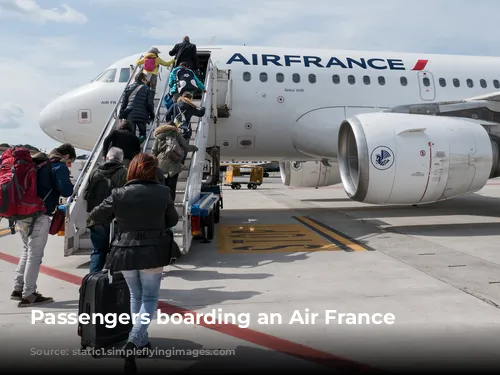
Airlines Face Double Whammy of Strikes and Airspace Restrictions
The pilot union Alter has also announced a strike at ORY to protest Air France’s decision to relocate its operations from ORY to CDG. The union claims nearly a thousand jobs will be impacted by the move. This strike began on July 22 and is scheduled to end on July 25.
This section examines the strike by Alter, focusing on their concerns regarding Air France’s move and the potential job losses.
Transavia, a low-cost carrier, is expected to absorb many of the routes abandoned at ORY, but the union argues this process is not moving fast enough.
This section discusses the potential solution offered by Transavia and the union’s dissatisfaction with its pace.
Adding to the chaos, a cabin crew union at Air France will also be striking for the same reason, from July 23 to July 29. Air France claims it can still operate its entire flight program, suggesting minimal impact from these strikes.
This section details the strike by the Air France cabin crew union and the airline’s response to the situation.
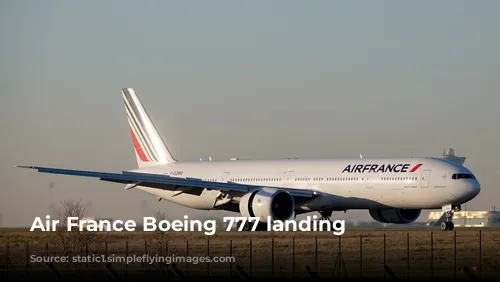
Airspace Restrictions Complicate Matters
A pre-planned airspace closure over Paris during the opening ceremony is scheduled to come into effect on Friday evening, further complicating the situation.
This section introduces the pre-planned airspace closure over Paris and its timing.
A no-fly zone, roughly the size of neighboring Belgium, will be enforced on July 26, prohibiting all flights over Paris’ airports from 18:30 to midnight local time. Authorities cite security reasons, arguing this is necessary to ensure a smooth opening ceremony on the Seine river.
This section clarifies the specifics of the no-fly zone, including its size, duration, and rationale.
Airlines were notified well in advance of this airspace closure, allowing them to adjust their schedules accordingly, minimizing the risk of last-minute cancellations.
This section highlights the proactive measures taken by airlines to avoid disruptions due to the airspace closure.
Despite the flurry of strike action and airspace restrictions, the aviation sector is committed to ensuring a smooth flow of passengers during the Paris Olympics.
This section emphasizes the commitment of the aviation sector to facilitate a successful Olympic experience despite the challenges.
